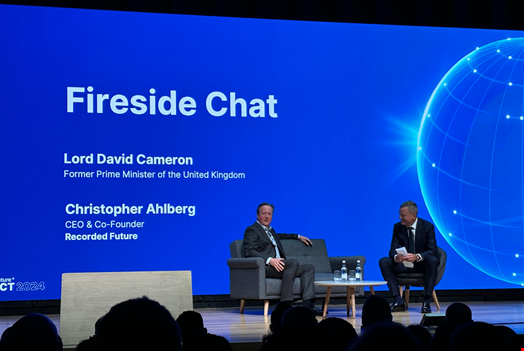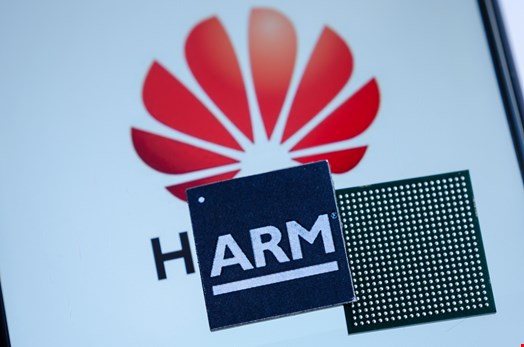The US, UK and like-minded nations should strengthen their security strategy against Chinese cyber threats but also try to collaborate with Beijing on other technological fronts, according to David Cameron.
The former British Prime Minister, who was also Foreign Secretary under Conservative Prime Minister Rishi Sunak, was invited to close Recorded Future’s Predict 2024 event in London on October 22, while the extended BRICS countries, including Russia, China and India, were in Kazan, Russia, for the 16th BRICS Summit.
Speaking with Recorded Future CEO Christopher Ahlberg on stage, Cameron said that the US, the UK and partner countries should “harden their systems against Chinese espionage” but also try finding ways to cooperate with China.
“Of course, the US must invest in protecting itself and have a very tough message on why it doesn’t agree [with cyber espionage conducted by Chinese-backed hackers], but also engage in cooperation in other areas, like climate change, for instance,” he explained. “Yes, China is one of the biggest polluters in the world, but it is also one of the greatest investors in green technology.”

In May 2024, Anne Keast-Butler, the new GCHQ director of the UK’s Government Communications Headquarters (GCHQ), warned that China’s irresponsible actions in cyberspace could weaken the safety of the internet for all.
US “Confrontational” Approach Towards China
Sharing a 2015 meeting with Xi Jinping, the former British Prime Minister said that when he asked him what worried him the most during a private conversation, the Chinese president said: “The two things I absolutely must avoid are falling into the middle-income trap and war with America.”
“Since then, the actions taken by his countries have not quite matched this statement, although we do see small hints of de-escalation with some countries in conflict with China, including India,” Cameron added.

However, the former PM also criticized the US approach towards China, in which he said “everything is about confrontation and hostility.”
Additionally, he fears that a Donald Trump victory in the upcoming US election would mean further escalation with China.
“With Trump, it’s always personal. He sees diplomacy as a zero-sum game and is constantly trying to find who is the winner, who is the loser – and who is the schmuck. Diplomacy is not always a zero-sum game, both parties can sometimes win,” Cameron continued.
“We’re facing two major conflicts, in Europe with Russia against Ukraine and in the Middle East with Israel against Hamas. Unfortunately, we’re more likely to see a third major conflict emerge than to resolve either of those.”
UK in the Tech and Cyber Arms Race
When Ahlberg asked him about the role of the UK in the tech, AI and cyber arms race, Cameron started by listing some of the country’s assets, including high-ranking universities, a deep capital market and the capabilities of the UK public and private sectors in technology.
“However, we won’t win this race if we sit back. Will the government be ahead of the curve? Probably not. But the GCHQ and the National Cyber Security Centre (NCSC) will,” he concluded.
“Will they share their knowledge, though?” asked Ahlberg. Cameron did not specifically respond.
